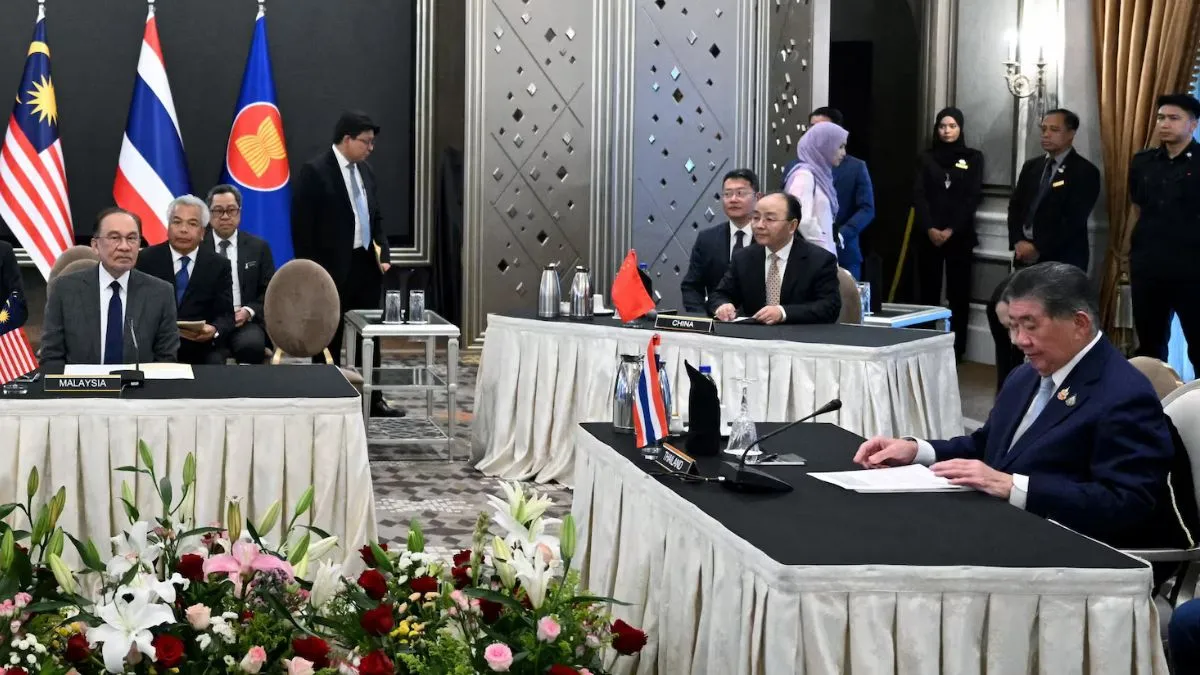- By Shivangi Sharma
- Mon, 28 Jul 2025 04:27 PM (IST)
- Source:JND
In a major diplomatic breakthrough, Thailand and Cambodia have agreed to an immediate and unconditional ceasefire to end ongoing border clashes that erupted last week. The announcement was made by Malaysian Prime Minister Anwar Ibrahim on Monday, following emergency talks in Malaysia between the two Southeast Asian neighbours.
Anwar, speaking at a joint press conference alongside Cambodian Prime Minister Hun Manet and Thai Acting Prime Minister Phumtham Wechayachai, said the ceasefire would take effect from midnight on July 28. “This is final,” Anwar declared, noting that both sides had reached a common understanding and would take steps to restore peace and normalcy along their shared border.
Common Understanding Reached
Malaysia, currently chairing the ASEAN regional bloc, played a mediating role in organising the talks amid rising concerns about the humanitarian and security implications of the conflict. “Both Cambodia and Thailand have reached a common understanding,” Anwar said, emphasising that the agreement was made in the spirit of regional cooperation and stability.
ALSO READ: Israel-Palestine Conflict: How UN's Two-State Solution Can Bring Peace In The Middle East?
Prime Ministers Hun Manet and Phumtham Wechayachai hailed the outcome of the negotiations. The two leaders shook hands at the conclusion of the press conference, symbolising their commitment to ending hostilities and initiating confidence-building measures.
Rising Casualties And Displacement
The ceasefire follows several days of violent confrontations along the 817-kilometer (508-mile) land border. Both nations have accused each other of starting the conflict, which escalated with heavy artillery shelling and Thai air strikes. So far, Thailand has reported at least 20 deaths, mostly civilians, while Cambodia has recorded 13 fatalities.
The violence has forced mass evacuations. Thai authorities said more than 131,000 people have been relocated to safe zones, while Cambodia reported that over 37,000 residents fled from three affected provinces. Many border villages now lie abandoned, with schools, hospitals, and basic services shut down amid the ongoing security threat.
This is not the first time the border region has seen bloodshed. The last major conflict occurred in 2011 near the 11th-century Preah Vihear Hindu temple, a UNESCO World Heritage Site that sits near the disputed frontier and has long been a flashpoint between the two countries.
